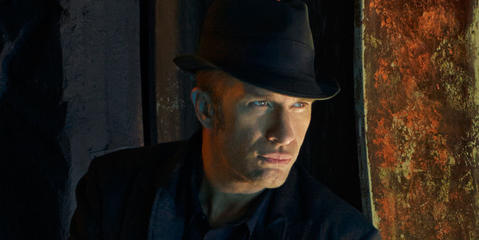“It seems you’ve really turned a corner!”
It’s a supportive idiom that people use when they bear witness to someone they care about getting into an improved situation in their life. And it can be very heartening to hear, especially if you’ve been going through a long hospital stay, an extended period of unemployment, or any number of other personal crises.
However, since brains are strange and often contradictory things, a turn of phrase meant to be supportive or encouraging can create feelings or thoughts that are neither of those things. When it’s suggested that you’re turning a corner, you may find yourself wondering what’s lurking beyond that corner — and how it will end up being even worse than whatever crisis you just left behind.
In terms of the physical world, corners cut off our line of sight. This creates dangerous circumstances for soldiers in combat, police officers in pursuit of a suspect, and a variety of other situations. Hence the comment made by the character of Miller in The Expanse when discussing combat tactics with an inexperienced youngster: “Doors and corners, kid. That’s how they get ya.” A blind corner or an ajar door can have any sort of dangers lurking behind it, and if you aren’t careful, those dangers can harm or even kill you.
If you’ve been hurt before, you will anticipate being hurt again. Our brains, like our bodies, are living things that fight to survive. And when you’re fighting to survive, you’re on the lookout for sources of harm that might lead to losing that fight. It’s why our bodies flinch under certain circumstances. It’s why we can focus on how we were treated previously by individuals or groups, rather than the facts of the current situation, the evidence and circumstances. And it’s why we feel a sense of fear when it comes to potential success or metaphorical corners, often taking the form of speculative questions about the future.
What happens if this works? What pressures will be put on me to repeat my success? How will my life change? Do I even deserve to succeed?
These questions, that fear, can completely paralyze us. We distract ourselves, divert attention elsewhere, procrastinate. We try to maintain a status quo, keep things as they are, rather than risk a big change. It takes time, and practice, to overcome those fears and move ourselves in the direction of that next corner. Even as we check said corner, we won’t know what’s there until we make the turn.
We are responsible for taking the steps forward that lead us around that corner, and how we go about doing so. The other things — pressures put on us, rewards from success, the presence or absence of others — are beyond our control. So if I were to offer a solution in dealing with our fears, it would be to focus on what you can control. Which is who you are, how you show up, and what choices you make to move forward.




Leave a Reply